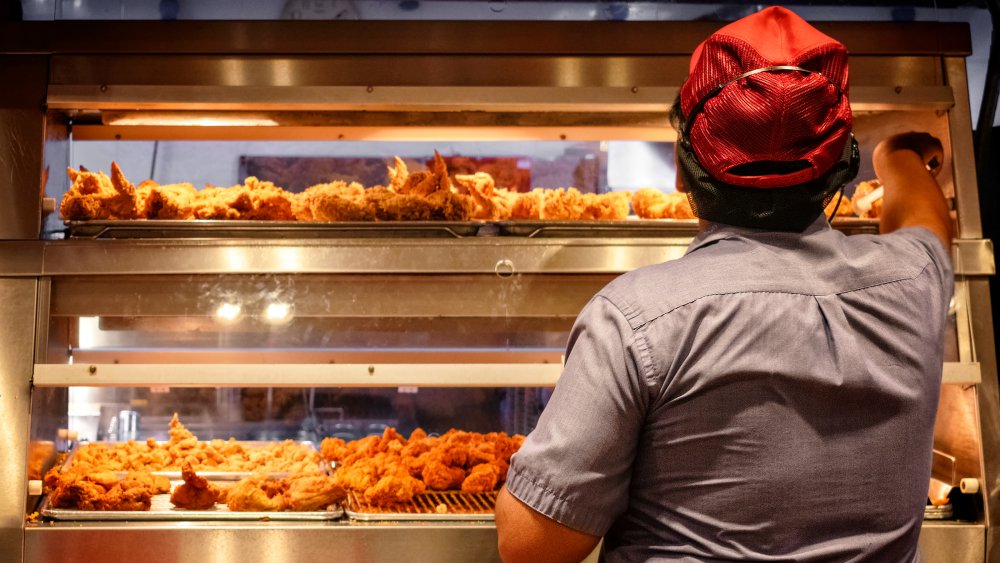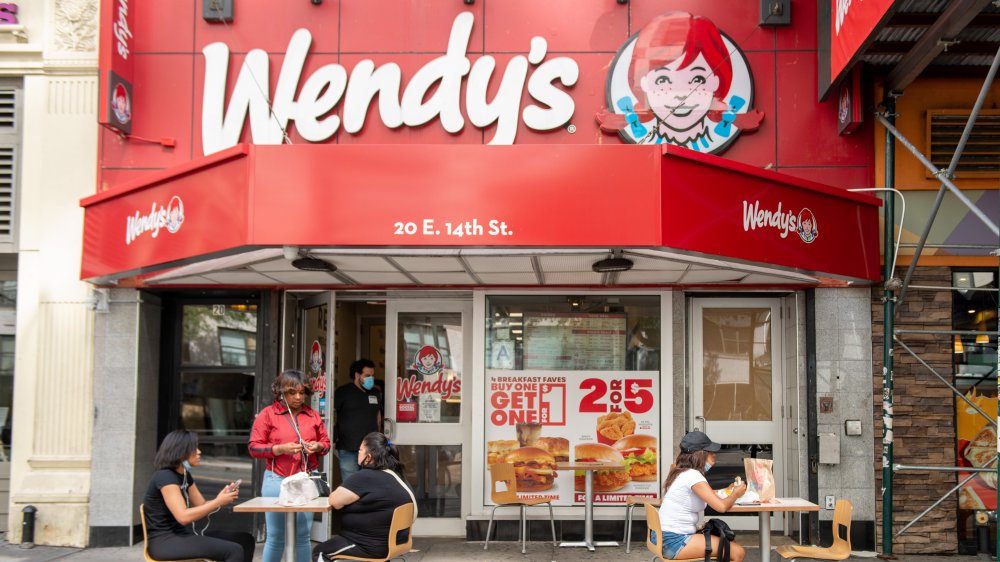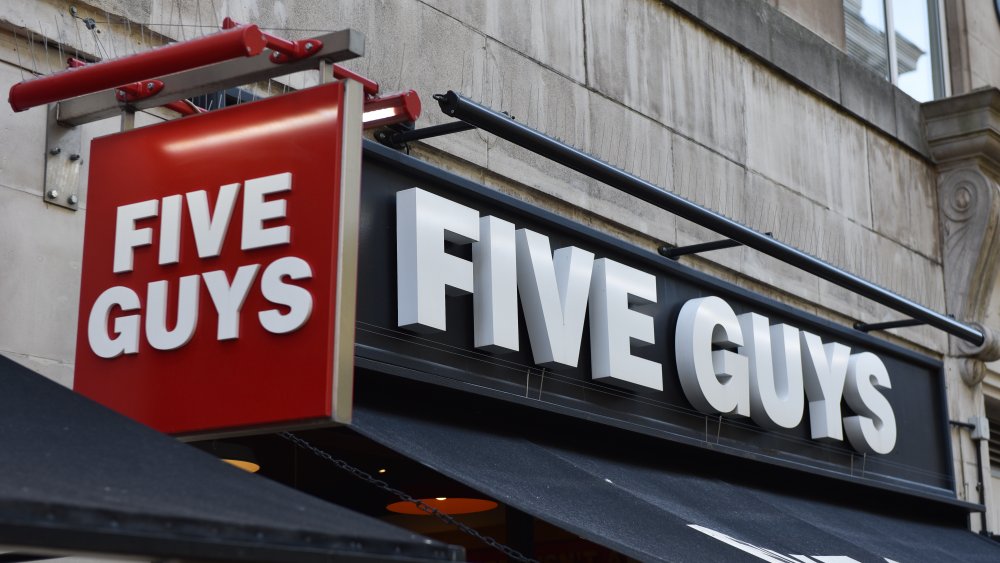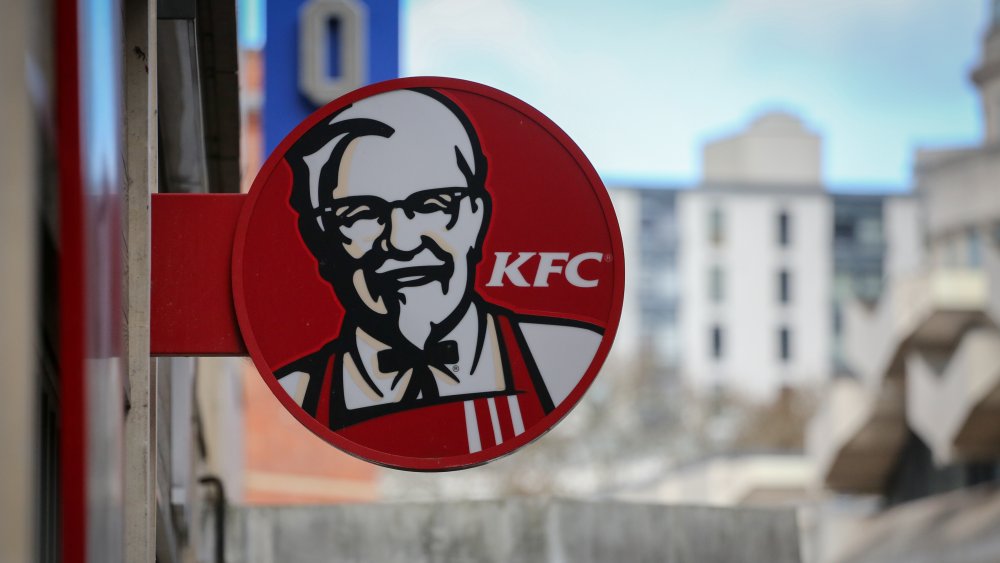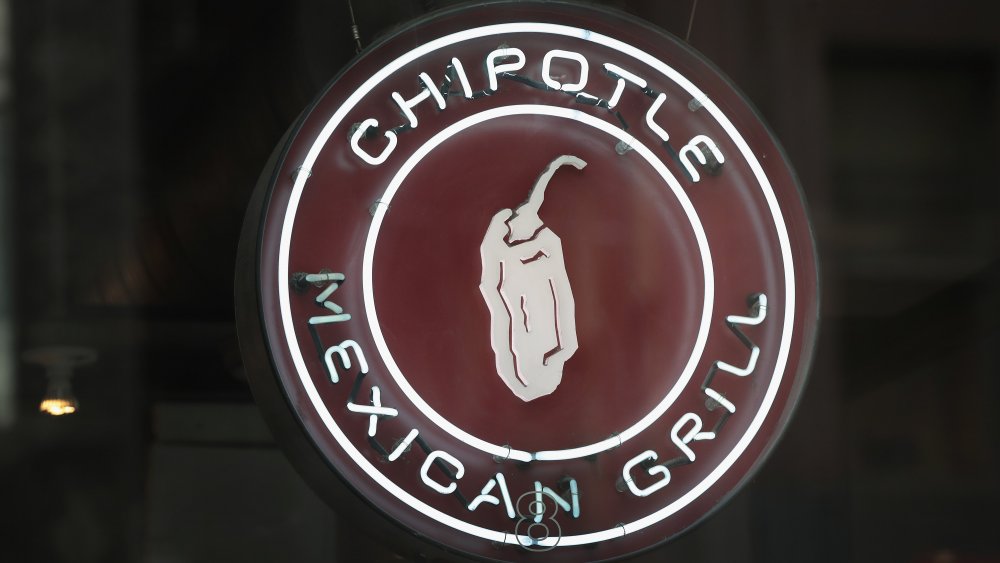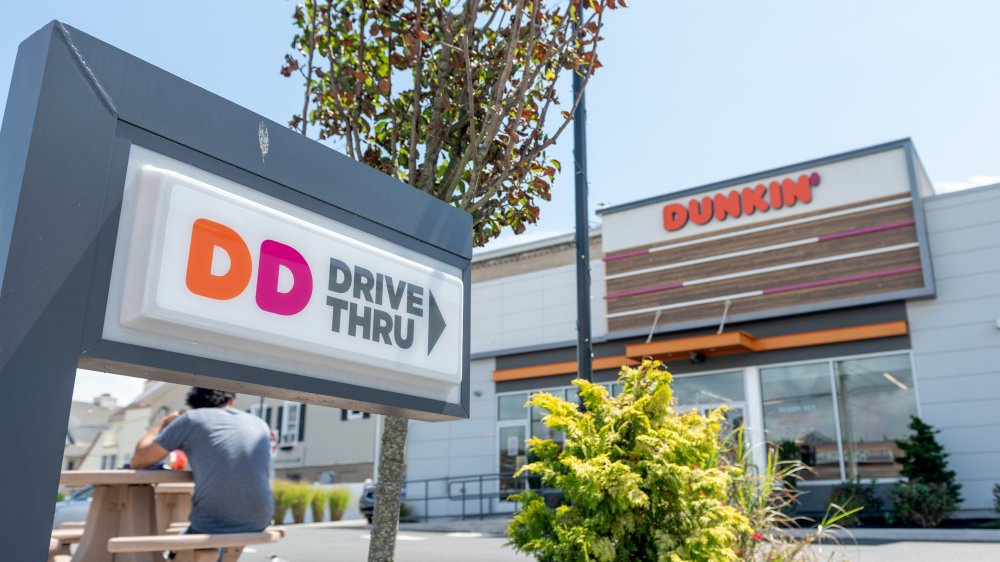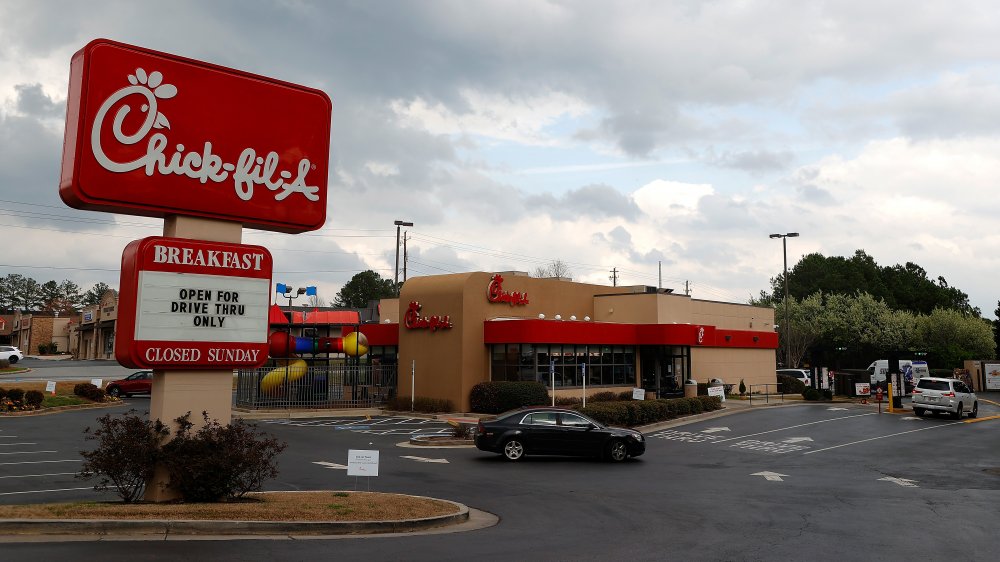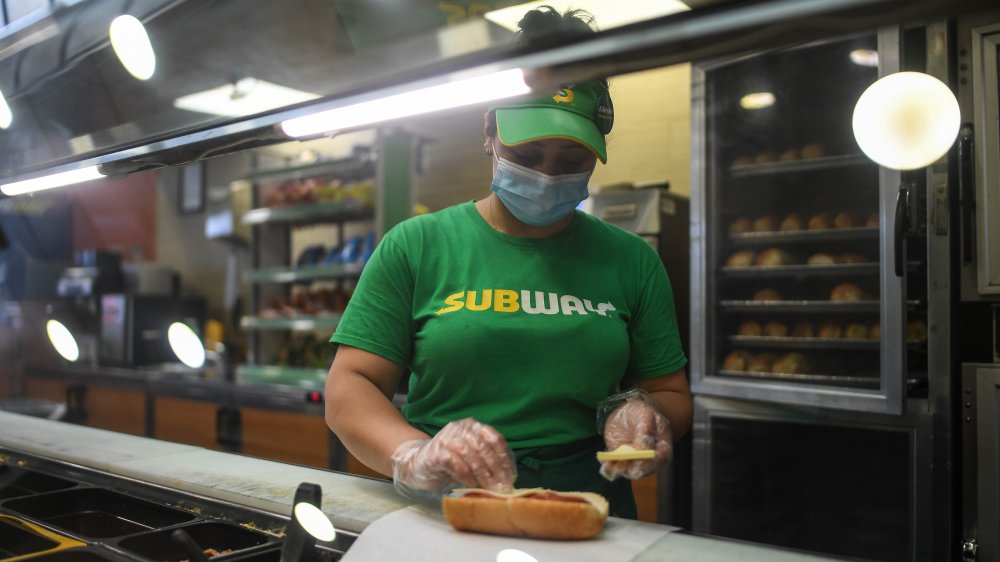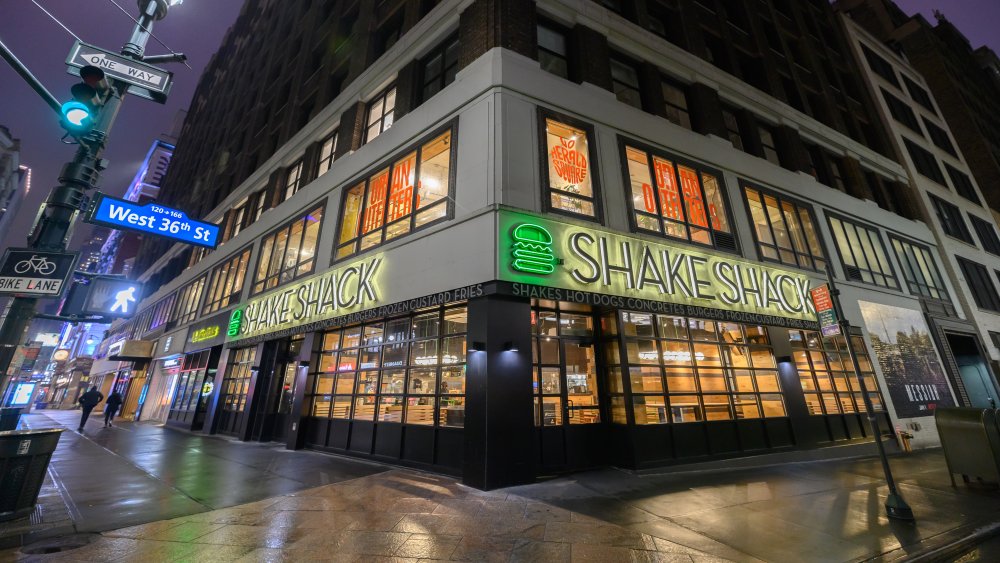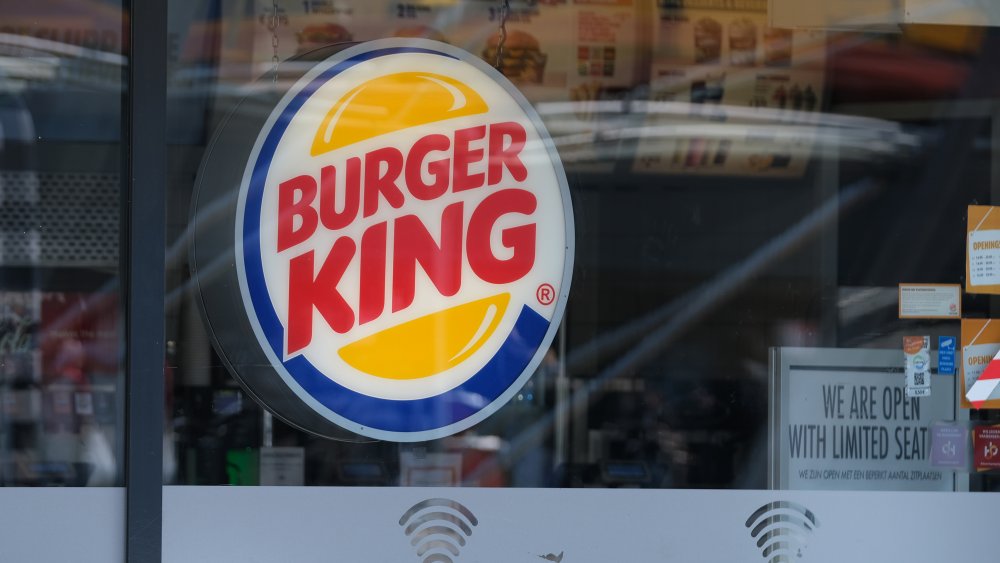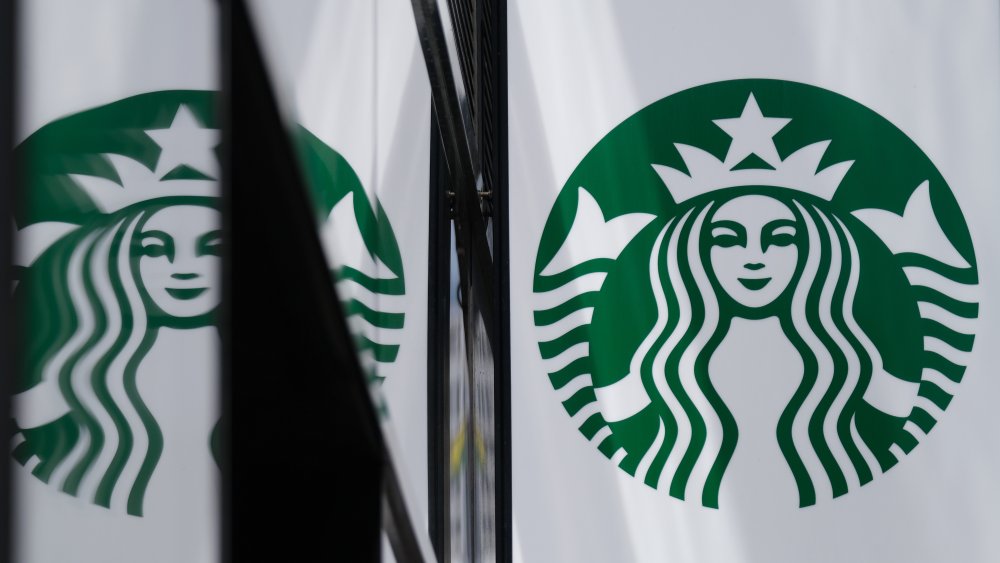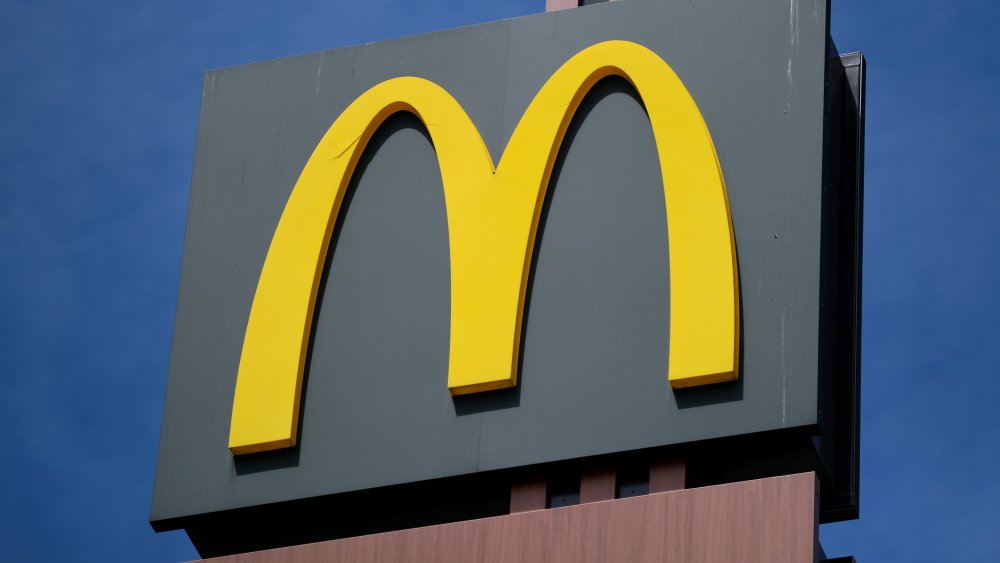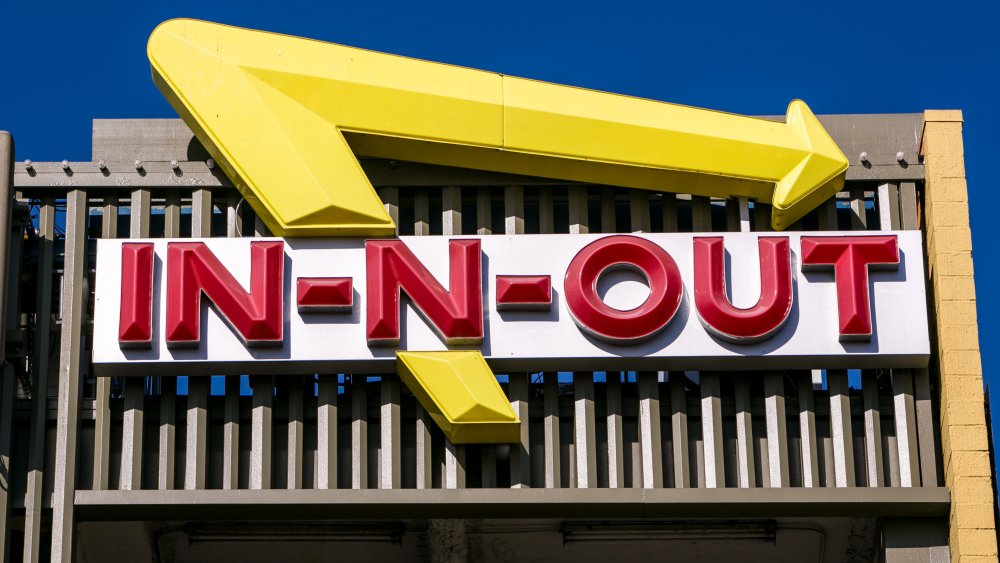The 6 Best And 6 Worst Fast Food Chains To Work For
The fast food industry has a problem: nobody wants to work in it anymore. Sure, there are some 4.2 million fast food employees in the United States (as of 2020) but they're just not sticking around. In 2019, CNBC reported that fast food chains in America are losing 100 percent of their workers each year in the midst of a turnover crisis, with some chains seeing employee turnover rates of up to 150 percent
So why does everyone want out of the fast food game? Well, there are a good number of reasons. There's also the fact that teenagers, traditionally a strong source of employment for fast food restaurants, are participating less in the workforce as time goes by. But there's one other reason — perhaps the reason — nobody wants to work in fast food: workers just don't think they'll be treated well.
Fast food is generally seen as an industry with low pay, few benefits, and little appreciation from bosses or customers. Is this really the case, though? Well, yes... and no. Some fast food companies really do have terrible reputations for mistreatment of their workers. Others, however, have seen much greater satisfaction from their employees — with some even being regarded as great places to work, not just in the hospitality industry, but full stop. But which are which? These are the best and worst fast food restaurants to work for.
Worst: Wendy's
"Quality is Our Recipe" may be Wendy's slogan, but it doesn't seem like the company has much right to be so optimistic about its workforce practices. For one thing, in 2013 Business Insider reported that Wendy's employees took home one of the lowest wages in fast food — at just $7.39 on average. Things have gotten a little better since then, with the same outlet reporting in 2019 that Wendy's employees were making around $8 to $9, but that's still no better than some of the other big-hitting fast food chains.
The company has also been hit by a number of labor-related scandals over the years. In January 2020, Wendy's was ordered to pay a fine of over $150,000 after stores across the U.S. — owned by one franchise company — were found to be violating child labor laws, with hundreds of minors working out of normal business hours.
"Child labor laws exist to ensure that when young people work, the work does not jeopardize their health and well-being or educational opportunities," said Louisville-based WHD division district director Karen Garnett-Civils. "We encourage all employers to review their employment obligations and to contact the Wage and Hour Division for compliance assistance."
Best: Five Guys
With a starting salary of close to $9 an hour in 2017, Five Guys aren't exactly blowing the competition out of the water when it comes to wages. Still, it's obviously a whole lot better than some chains, and there is scope for a better hourly wage; PayScale suggests the company pays its workers an average of $11.41. But the Virginia-based hamburger company does have a number of other things going for it when it comes to how it treats its employees. The benefits are generous, for example, and Five Guys offers a tuition assistance program, which allows eligible employees to enroll in high school and college courses, with both partially-funded degree and fully-funded degree options available for workers.
On top of that, Five Guys conducts regular audits of its stores, led by independent examiners, which mark them on quality of service, safety, and cleanliness. A 1.5 percent portion of the gross revenue of Five Guys' nationwide franchises goes into a pot, which is then redistributed every week to workers who have scored well on the audit. Each crew collects a total of $1,000 when an audit is completed successfully.
Just be aware: not all is well in the world of Five Guys, and, despite offering good benefits and decent pay, the company has been on the receiving end of a labor lawsuit every now and again. Nonetheless, you can probably still count them (just about) among the best of the major fast food chains to work for.
Worst: KFC
Although it was McDonald's that quickly became the center of the vast "Fight for $15" campaign, KFC actually had a lot to do with how it began. In fact, two separate KFC employees in Brooklyn each became major players in the movement.
The first was Alvin Major, a worker who, in 2015, penned an article for CNBC explaining why he had gone on strike a number of times in the previous few years. Major had been working at three different KFCs in Brooklyn, receiving just $7.25 an hour at each. He was working up to 80 hours a week, on irregular schedules, and had even been injured on the job.
Meanwhile, Naquasia LeGrand was, according to USA Today, "one of the most visible faces" of the Fight for $15 movement. She too was making just $7.25 an hour and worked at two KFCs — but, as she later told Stephen Colbert on an appearance on The Colbert Report, "still couldn't make it." She continued: "We're just sick and tired of being sick and tired."
But it doesn't look like the Fight for $15 campaign has done much for KFC's treatment of workers. In 2018, a lawsuit was levied against the chain alleging that cooks, cashiers, and shift managers had been underpaid at hundreds of KFC restaurants owned by KBP Foods, a franchising company. Similarly, in 2019, the Department of Labor Investigations found wage violations that had been committed by Whiteford's Inc., a company that operated 30 KFC and Arby's locations across South Carolina and Georgia.
Best: Chipotle
In 2015, Chipotle made headlines when they greatly expanded their employee benefits. Beginning on July 1 of that year, the company offered full tuition reimbursement, paid sick days, and paid vacation to all employees. These benefits had previously been available for salaried workers, but were subsequently offered to hourly staff in the hopes of decreasing turnover rates.
It's little wonder, then, that a year later Chipotle was named one of Kununu's best-reviewed employers. According to that website, the company was one of the top five best-reviewed employers in their entire database, averaging a rating of 4.41 out of 5. The newly-expanded benefits from the previous year were cited as one reason for the chain's popularity with workers, and it also received high marks for its "Office/Work Environment" and "Company Image."
Kununu also cited a popular post on Quora, which saw users describing Chipotle as "a wonderful place to work at" and "pretty great, if only for the free Chipotle" — but also "demanding and difficult." One user wrote: "As far as benefits, Chipotle is really solid. They offer health, dental, and vision via Blue Care network, discounted degree programs via Guild education, college credit for your training, and like $5,000 dollars of college tuition reimbursement per year if you're willing to make an 18 month commitment to it."
Worst: Dunkin'
Most of Dunkin's problems fall in line with what you often see elsewhere in the fast food industry — wage theft, child labor violations, class action lawsuits... you know, the usual.
Some examples include the federal lawsuit issued in 2016 alleging a franchise had engaged in systemic wage theft against employees; the fines issued against two franchise owners in 2011 for breaking child labor laws; the class action lawsuit in 2016 alleging franchise owners had committed wage and hour law violations; or the 2018 case in which an operator paid a $60,000 fine for violating Massachussets' Earned Sick Time Law.
Now, you could make the case that these abuses took place at individual franchises, and blame could be squared solely on the franchise owners, rather than Dunkin' themselves. But the sheer number of violations here is pretty remarkable, and you've got to wonder how Dunkin' — a company with a responsibility to take care of its workers — has allowed so many employees to slip through the cracks.
Arguably the most shocking controversy of all came in 2018, when a Baltimore branch of Dunkin' (then called Dunkin' Donuts) put up a sign encouraging customers to report any employees who spoke any language other than English... and even offered free food to those who did. Although Dunkin' had the sign taken down as soon as it hit headlines, the company's recent use of lawsuits against franchises that employ undocumented workers is unlikely to result in much more of a healthy work environment.
Best: Chick-fil-A
Chick-fil-A offers some pretty decent benefits and perks to its employees. For one, according to a 2019 analysis conducted by Money (via Yahoo! News), the company's 401(k) plan "ranks first among companies in the accommodations and food services industry." It found that the average Chick-fil-A employee had $158,188 in their 401(k) balance, more than triple the industry average. What's more, all full-time employees are able to enroll in the scheme, and the company matches up to 5 percent of the money paid in.
Meanwhile, it was reported in 2018 that the chicken chain had greatly expanded its education benefits, including offering $14.5 million in scholarships to employees across the country. The so-called "Remarkable Futures" initiative gives workers scholarships of $2,500 or $25,000, and there is no requirement of hours worked or length of service in order to qualify.
And as for the pay? Well, most Chick-fil-A branches will pay you a decent — if unremarkable — wage, but if you live in California, you might just be in luck. At one franchise in Sacramento, the owner announced in 2018 that he would be paying his employees what he called a "living wage" of at least $17 an hour. "As the owner, I'm looking at it big-picture and long-term," Eric Mason told a local news station. "What that does for the business is provide consistency, someone that has relationships with our guests, and it's going to be building a long-term culture."
Worst: Subway
In 2014, CNNMoney conducted an analysis of data that had been collected by the Department of Labor's Wage and Hour Division, and found that Subway was by far the biggest offender among fast food companies underpaying their employees. The report found that individual Subway franchisees "had been found in violation of pay and hour rules in more than 1,100 investigations spanning from 2000 to 2013." In total, that meant around 17,000 actual violations had been discovered, with Subway being forced to pay back over $3.8 million over the years.
And, as CNN points out, these numbers only reflect the violations that had actually been caught. In 2013, Subway's headquarters was even partnered with the Department of Labor in order to ensure the company's compliance with the law. A Department of Labor spokesperson said: "It's no coincidence that we approached Subway because we saw a significant number of violations."
Since 2014, things don't appear to have become much better. In 2019, a number of stores in North Carolina were forced to pay back almost $14,000 in back wages; that same year, a franchisee in Texas paid its employees nearly $80,000 in back wages after a Wage and Hour Division investigation; and in 2020, documents obtained by HR Drive showed that Subway was among a number of employers that had reported (voluntarily, to its credit) wage and hour violations amounting to more than $20,000 as part of a U.S. Department of Labor program.
Best: Shake Shack
Since many fast food chains have been facing a workers retention crisis in the last few years, Shake Shack seems to be doing everything it can to keep employees happy. In a 2019 letter to investors, the company's chief executive Randy Garutti said: "With rising wage pressure, and record-low unemployment, it's never been more challenging to find, develop, and keep the best talent."
So how are they doing this? Well, in 2018, they promoted 1,151 employees, 58 percent of whom were women. It also piloted a women's mentorship program to "support health and leadership development" and, in 2019, was designated a Best Place to Work for LGBT Equality. The company also hopes to pay higher wages as time goes on, saying in a statement: "Overall, we expect wages at all levels to continue to increase in the near and short term and we expect these rising wages to add pressure to our operating profit."
More creative ways of luring in and keeping employees include offering managers stock options and testing out a four-day work week. "We've gotta invest in our people. We need to pay people well. We need to give our general managers stock every year so they're owners of this company," Garutti told CNN (via St. Louis Post-Dispatch). It's worth noting that the most lucrative benefits do apply only to salaried workers, however — so you're gonna have to climb the ranks to really get the most out of Shake Shack. But once you're there? You wouldn't want to be anywhere else.
Worst: Burger King
Burger King might like to position itself as fast food royalty, but many of its workers feel they're treated more like serfs.
Take Glenn Johnson, a Floridian Burger King employee who wrote a piece for Huffington Post in the wake of the Fight for $15 movement. He describes his typical day at Burger King as "pure hell."
"If I don't take a day off, I probably get around 35 hours a week," Johnson writes. "I would like anywhere from 40 to 50 hours a week. There are no benefits. I'm getting ready to come up on a vacation. You don't get paid for vacation, so I might as well just work it. I don't have health insurance because I don't have enough money to get health insurance."
Johnson reveals in his article that he makes $7.39 an hour, and hasn't been given a raise in his time at Burger King. "The stuff I have to go through and deal with every day," he says, "the attitudes and all, I figure the money they're paying me, with the customers — what they're saying and what they're calling me — it's not worth it."
Criticizing the company directly, Johnson says: "I would love to see the wages get raised. But man, they're so cheap. [...] If the CEO of Burger King was sitting here right now, I'd tell him I need a raise. More money, more hours. Simple as that."
Best: Starbucks
Starbucks is renowned for offering their employees... well, pretty much everything under the sun. There are five "killer perks" of working for the iconic coffee company, according to AOL. Firstly, employees are entered into the "Bean Stock" program, which essentially gives them a grant of shares, 50 percent of which is made available after their first year, and 50 percent of which can be accessed after their second. As a result of this, employees are referred to as "partners" — which, honestly, doesn't mean all that much. But it's nice!
Employees are also given benefits packages that are customized for each employee, and can include bonuses, 401(k) plans, healthcare, dental plans, and even adoption assistance, with part-time and full-time employees being eligible. On top of that, Starbucks pays employees' college tuitions if they enrol online at Arizona State University, and they're not even obligated to stay with the company after they graduate.
Oh, and there's the free stuff. Employees are allowed to take home either a pound of coffee beans, a box of K-Cup Pods, or a box of their favorite flavor of tea to take home, as well as enjoy a 30 percent discount on all food and drink. Throw in an average wage of $10 to $15, and Starbucks starts to look like a seriously attractive job prospect.
Worst: McDonald's
Yeah, no surprise here. After all, there's a good reason why the Golden Arches came dead first in a U.K. poll of the worst fast food chains to work for. The company was scored particularly poorly on salaries, senior management, career opportunities, and culture and work/life balance. And McDonald's Glassdoor reviews don't paint a better picture. One listed some of the company's negative aspects, including "rotation hardly happens, long shifts, pay, send you home if there's high labour."
Things aren't much better stateside, either. In 2020, the company launched a website to help its workers figure out how to budget on a McDonald's salary. Among the examples given, shockingly, was the suggestion to get a "second job." And that was under the assumption workers would pay $20 a month for healthcare, $0 for heating and $600 for rent. Worse still, in 2019, McDonald's was criticized for "failing to protect workers from workplace violence," suggesting that the unusually long hours of operations undertaken by the restaurant meant that thousands of workers were put at risk due to "the high levels of violence associated with late-night retail." Doesn't paint a happy picture, does it?
Best: In-N-Out Burger
That's right — In-N-Out Burger doesn't just have the best burger in fast food, but it's also the best fast food joint to work at. In a hugely impressive showing for a casual dining company, In-N-Out came #4 on Glassdoor's 2018 list of the Best Places to Work. In the whole country. So what makes it so appealing?
"In-N-Out has a starting rate of $11 an hour, a 401(k) plan, paid vacation days, and health insurance," a Glassdoor rep told MUNCHIES. "In-N-Out associates receive salaries and perks that are well above the industry average. They also have a strong on-the-job training, opportunities for advancement, people-focused leaders, and a fun, friendly environment."
This all apparently comes down to the work of CEO Lynsi Snyder, who told Glassdoor a few years earlier that she had attempted to bring a "positive, fun atmosphere" to the company, and keep the workforce satisfied and protected. And you've gotta give her credit — because it looks like she's done just that.
